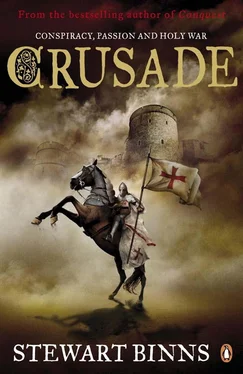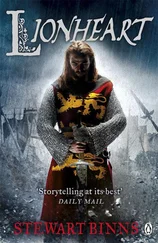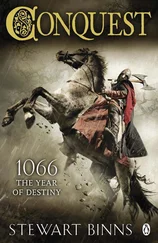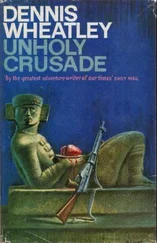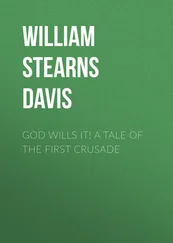To Edgar
A forgotten prince, the last of his dynasty, but one of the builders of a new England
To Edward Grant-Ives, 1926–2010
My father-in-law, a true Englishman
The year is 1126, the twentieth year of the reign of Henry Beauclerc, the fourth son of William the Conqueror. He will be the last Norman King of England.
Norman rule in England remains resolute and the country is prospering. However, endless feuds within the Norman hierarchy, especially between the Conqueror’s sons, have brought much strife and bloodshed to England, the British Isles and Europe.
Elsewhere, Christian Europe has become obsessed by Jerusalem and the Islamic lordship of the Holy Land. The First Crusade had been launched in 1095 and, amidst much brutality, led to the capture of Jerusalem in July 1099. After 700 years of slumber, a new Europe is asserting itself and the price paid for this by many tens of thousands is exacted in blood.
And yet, even in the midst of the worst of the mayhem of internecine bloodletting and religious fanaticism, the hope still flickers among many that peace and liberty are attainable.
A new code of ethical behaviour begins to emerge, in part influenced by the moral qualities of Islam, known as the Mos Militum – the Code of Knights. Honour, truthfulness, courage, martial prowess, pride in the face of superiors, humility in the face of inferiors and protection of the weak – women, children and the old – all are becoming cherished virtues among the warrior classes.
Epic sagas of heroic feats from the past flourish. The highly popular Chansons de Geste and 1001 Arabian Nights tell of great and worthy deeds and inspire young warriors to lead better lives. There is even the beginning of a highly romanticized view of women. Previously excluded from military ideals, the notion of Courtly Love has emerged, where women are idealized and knights strive to impress them rather than possess them.
It is the dawn of the Age of Chivalry.
PART ONE
The Forgotten Prince
The scriptorium of Malmesbury Abbey is in the middle of a long working day, a day that begins at five in the morning and does not end until vespers in the evening. Over twenty monks are zealously transcribing and illustrating the great books of the day, including those of Abbot William, the leader of Malmesbury’s Benedictine community and widely regarded as the wisest man in England.
Although the scene is a picture of intense toil, except for the gentle scratch of quill on vellum, it is conducted in reverential silence.
The monks of Malmesbury are the guardians of the finest library in northern Europe. They are engaged in the vital work of transcribing the precious word of God and the entire fruits of human knowledge. Their labours will become a major part of the heritage of these times.
Outside the abbey cloisters the burgh of Malmesbury bustles and flourishes noisily with the din of the commerce of urban life. An ancient settlement resting on an easily defended flat-topped hill, its celebrated springs have attracted settlers for hundreds of years.
In the heart of Wessex, Malmesbury had been a jewel in the crown of Anglo-Saxon England. With the arrival of the Normans sixty years ago it was one of the first English burghs to come under direct Norman rule. In 1118, Roger of Salisbury, Chancellor to King Henry I, seized Malmesbury and brought it under his bishopric at Salisbury. He immediately began to rebuild the abbey and the burgh’s walls in stone, a process which is still much in evidence.
The burgh is typical of England under the Normans – at least, in the prosperous southern earldoms. It is thriving in an uneasy, pragmatic truce between the ruling Normans and the defeated and dispossessed English. As is often the case in conquered lands, the victors offer sufficient wealth and opportunity to important parts of the native community to persuade them to cooperate with the new regime. Some call it treason, others cowardice, yet others common sense.
William of Malmesbury’s great work, Gesta Regum Anglorum , a history of the kings of England, had been completed in 1122, but he is still adding accounts, anecdotes and stories to the vast wealth of knowledge in the abbey.
Sadly, his eyesight is failing him and he relies more and more on the support of the brightest of his young acolytes, Roger of Caen, an intellectually gifted and enthusiastic young Norman, the second son of a nobleman.
William, a tall, stooping figure looking every inch a learned ecclesiast in his black habit, summons Roger into the cloister.
‘We must journey to the North.’
‘Why, Abbot? It is a wasteland…’
‘Recently, a Norse trader from Northumbria brought me an interesting story. What do you think became of Prince Edgar the Atheling?’
‘He must be dead by now.’
‘Well, the Norseman tells me he’s alive and living in a remote hamlet, high in the Pennines.’
‘Do you think such a journey is wise when winter is well nigh upon us?’
‘Perhaps not… but the chance to meet the rightful heir to the English throne is a rare opportunity, and too fortuitous to miss.’
‘You English, you never give in! His time passed him by sixty years ago. If he is still alive he must be in his dotage by now.’
‘Nevertheless… Choose three or four good men, and make sure they are handy with a sword. We leave after prayers in the morning.’
As William’s small party of monks journeys northwards, England’s countryside changes from a thriving kingdom of southern shires, where another rich harvest has been safely gathered in, to mile upon mile of grim desolation.
At Gloucester, Worcester and Chester they see new Norman strongholds in all their grandeur. Massive stone keeps are replacing wooden mottes and baileys, modest Saxon cathedrals are being rebuilt on impressive Romanesque lines. Normans and Englishmen mix freely; this new England is a land transformed. However, north of Chester, settlements become more and more sporadic and in places where people are to be found, they live in little more than hovels and endure a pitiful existence.
In the southern earldoms, people speak only of the memories of the massacres committed by William the Conqueror in his Harrying of the North of nearly sixty years ago. But in the North, the nightmare is still real.
After crossing the Mersey, William decides to make several detours down minor routes, both east and west. Away from the main road to Scotland, a route which runs north through Preston and Lancaster where a thin band of normal life is upheld by the vigilance of Norman garrisons, lie huge tracts of ravaged land. Rapidly being consumed by nature, decades of backbreaking toil to clear forests, plough fields and build villages will, in another generation, be wasted. Prime farming land will become nothing more than wilderness.
The western side of the Pennines is the most impoverished of all. In the east, the strategic route to Scotland and the importance of York and Durham mean that the Normans have been careful to rebuild and resettle. In the west, little has changed since the murder and destruction of 1069.
So complete is the devastation and killing in the remote parts of the hinterland that no one is left to bury the dead. Bodies, now no more than sun-bleached skeletons wrapped in rotting fragments of clothing, are still lying where tens of thousands of people were massacred in their villages.
William is deep in thought; there are tears in his eyes, his knuckles white as he grasps his reins in anguish.
Читать дальше
